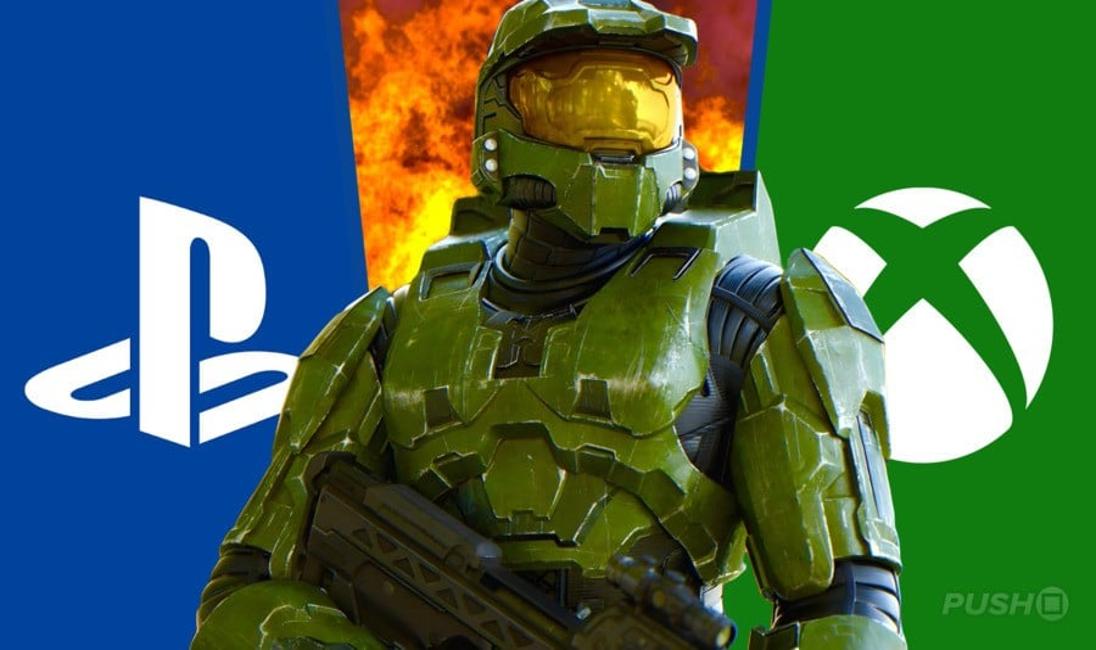Okay, let's talk Xbox. But not in the way you might expect. Forget console wars for a minute (though, let's be honest, who doesn't love a good fanboy squabble?). I want to talk about something far more interesting: Xbox's evolving identity. And the recent release of Halo on PS5? Well, that's a pretty big clue.
For years, Xbox's strategy was pretty straightforward: build the best console, get the best exclusives, win. Simple, right? But the gaming landscape is shifting faster than a loot goblin dodging axes. And Xbox, bless its heart, seems to be adapting. Actually, adapting is an understatement. They're practically shape-shifting.
Xbox: Beyond the Box?
The whole 'console exclusive' thing? It's starting to feel a little… dated. Look at Halo. Seeing Master Chief grace the PS5 is kind of like seeing your favorite band suddenly go mainstream. There's a part of you that's thrilled for them, but also a tiny part that's screaming, “Sellout!” But is it, really? Or is it just smart business? I'm leaning towards the latter. Here's the thing: Xbox isn't just about selling consoles anymore. It's about selling… experiences. Games. Subscriptions. Access. And that changes everything.
Think about Xbox Game Pass. It's like the Netflix of gaming. A buffet of titles for a monthly fee. You can play on your Xbox, your PC, even your phone via cloud streaming. The hardware? Less important. The game? Paramount. You might be wondering why they do this. Well, the answer is that this approach will benefit them in the long run.
But, and this is a big but, this shift isn't without its challenges. The die-hard fans, the ones who bleed green, might feel a bit betrayed. "What about us?" they cry. "We bought the console! We deserve the exclusives!" And honestly, I get it. There's a sense of ownership that comes with being part of a platform's ecosystem. It feels good. It's validating.
Halo on PlayStation: A Sign of Things to Come?
Let me try to explain this more clearly, even though I already have. Games like Sea of Thieves and Grounded are now available on competing consoles like the Nintendo Switch and Playstation. Phil Spencer, the big cheese at Xbox, has stated that more exclusives will come to the rival consoles in the future. More Xbox games coming to Playstation and Switch
The frustrating thing about this is the question of what makes a console worth buying in the first place. If all the best games are available everywhere, why pledge allegiance to one box over another? Is it just habit? Brand loyalty? The shape of the controller? Actually, that's not quite right. There's something even more interesting here...
The competition between Sony, Microsoft and Nintendo isn't just about outdoing each other through exclusive titles anymore. There is also a war for developers that makes these gaming companies unique. This article will give you an in-depth look at the competition.
This is where things get really interesting. Because if Xbox isn't primarily a console company anymore, what is it? A software and services company? A gaming ecosystem provider? Something else entirely? I think it's all of the above. And that's a pretty bold move.
Navigating the Multiformat Future
But how does Xbox navigate this multiformat future? How do they keep their core fanbase happy while simultaneously expanding their reach? That's the million-dollar question. Or, more accurately, the multi-billion-dollar question. It's a tightrope walk, no doubt about it. They need to offer enough value to justify buying an Xbox (or subscribing to Game Pass) while also making their games accessible to as many players as possible. No small feat. I keep coming back to this point because it's crucial.
And the answer likely lies in… well, I don't know. If I had all the answers, I'd be running Xbox, not writing blog posts in a coffee shop. But I suspect it involves a combination of things:
- Continuing to innovate with hardware (the Series X is a beast, let's be honest).
- Doubling down on Game Pass and cloud gaming.
- Supporting their first-party studios to create killer content.
- And, yes, even releasing some of their games on other platforms.
It's a balancing act. A dance. A carefully choreographed performance. And it's going to be fascinating to watch. After all, Xbox has the resources and expertise to become the biggest software and gaming company in the world. Check out this interesting article about Marvel Rivals Next Update.
The old rules don't apply anymore. The console wars are still fun to watch, sure. But the real battle is for hearts, minds, and subscriptions. And Xbox, it seems, is ready to fight on all fronts.
Oh, and one more thing: don't count Sony out. They're not going to sit back and watch Xbox rewrite the rules. This is going to be a wild ride.
FAQ About Xbox's Evolving Strategy
Why is Xbox putting its games on PlayStation?
The shift to a multiformat strategy signals that Xbox is prioritizing expanding its reach and revenue streams beyond just console sales. By releasing games on PlayStation (and potentially other platforms), they can tap into a larger audience and increase their overall profits. It's about getting their games into as many hands as possible, even if it means breaking with traditional console exclusivity.
Will Xbox stop making consoles?
Highly unlikely. While Xbox is embracing a broader strategy, they've invested heavily in their hardware. Consoles will continue to be a significant part of their ecosystem, offering a premium experience for gamers who want the best performance and exclusive features. The shift is more about offering choices and expanding access, not abandoning consoles entirely.
Does this mean the end of console exclusives?
Not necessarily, but the definition of “exclusive” is changing. We might see fewer games that are completely exclusive to one console, and more games that are timed exclusives or available on multiple platforms with different features or benefits. The goal is to balance the desire to reach a wider audience with the need to provide value to core Xbox fans.
How will this affect Xbox Game Pass?
Game Pass will likely become even more central to Xbox's strategy. It's a way to offer a consistent stream of content and value to subscribers, regardless of which platform they choose to play on. We might see more cross-platform integration and cloud gaming features that make Game Pass even more appealing.
Another popular game to play is Fortnite which is available on various platforms.
- First important point about the content
- Second point with detailed explanation
- Another noteworthy detail
- Final concluding thought






















































